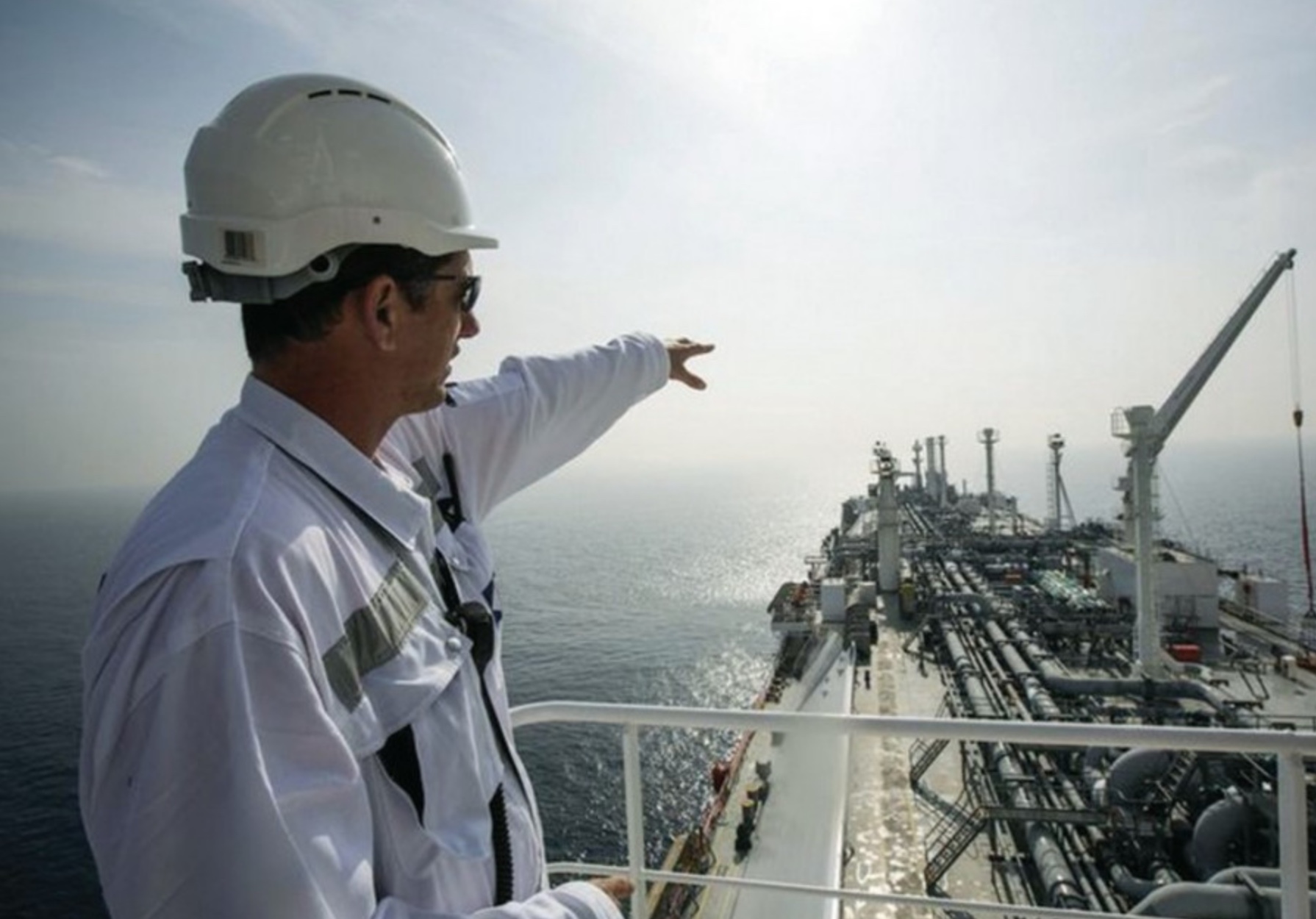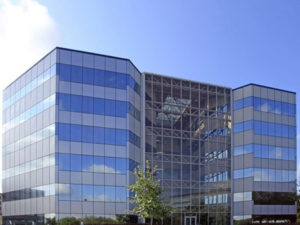Transition to cut nitrogen oxide emissions by nearly 80 percent.

A man points as he stands on a tanker carrying liquified natural gas, ten miles off the coast from Hadera. (photo credit: REUTERS)
The Israel Electric Corporation and Dor Chemicals have completed a NIS 15 million conversion of a diesel-powered gas turbine at Eilat’s power plant to run on methanol – a transition that slashes nitrogen oxide emissions by some 80 percent.
In conjunction with the National Infrastructure, Energy and Water Ministry, the companies launched the 50-megawatt capacity turbine at a ceremony in Eilat on Wednesday.
Implementing the project, which entailed converting one of three turbines at the city’s power station, required NIS 15m. for the purchase of equipment and its adaption to the particularities of the Eilat facility, according to IEC.
From Wednesday on, however, Eilat residents will be able to benefit from cleaner, more breathable air, the companies said.
“Due to the many advantages, I expect that in the not so distant future methanol will become a significant fuel as a substitute for diesel in the State of Israel and around the world,” said National Infrastructure, Energy and Water Minister Silvan Shalom.
Three years ago, the IEC granted Dor Chemicals permission to perform a trial conversion of a gas turbine at the Caesarea power plant to methanol. Upon successful completion of the trial, the companies chose Eilat as the location for active implementation of a methanol-powered facility.
Eilat is the ideal site for methanol electricity generation, as the city has an urgent need for a more reliable electricity supply, according to the IEC.
The initial commercial facility in Eilat, Shalom stressed, has the potential to “serve as an example for the world.”
“This is additional proof of the importance of investment in research and development that leads to ‘blue and white’ achievements,” the minister said.
The transition from polluting diesel fuels to methanol – which is derived from natural gas – provides Israel with considerable strategic advantages by reducing the country’s dependence on oil and diversifying its energy supply sources, stressed Dor Chemicals chairman Gil Dankner.
In addition to decreasing nitrous oxides levels, the use of methanol also reduces the presence of sulfur dioxide and respirable particles in the atmosphere, he said.
“There is no doubt that this cooperation will bring additional customers around the world, as well as the correct exploitation of the gas resources found in the sea near Israel and the establishment of methanol plants where natural gas will be used as the raw material,” Dankner added.
“These plants will contribute to the continued development of other industries, which will mean additional jobs and the development of the Israeli economy,” he said.
IEC chairman Yiftah Ron- Tal praised the cooperative effort that went into implementing the Eilat turbine conversion, calling the project “groundbreaking on a global level among the efforts to find alternatives to diesel.”
Methanol is a member of the alcohol family, with similar characteristics to ethanol, and is liquid at room temperature – making storage and handling methods readily available, the IEC explained.
As opposed to diesel, methanol contains no sulfur, has 80% less nitrogen oxides and low respirable particle releases when burned.
Methanol usage is considered very safe because of its relatively cool burning temperature and the ease at which the burning process can be shut down, the company stressed.
Common production of methanol occurs by the conversion of natural gas to synthesis gas through a catalytic reaction that generates methanol and water vapor.
“We are the ones who will have to account for our children and grandchildren, and we will not compromise when it comes to their health and the quality of air that they breathe,” said Environmental Protection Minister Amir Peretz. “The breakthrough here in Eilat in the transition to the use of methanol, with advanced technology, is a huge achievement for the environment and for residents.”

